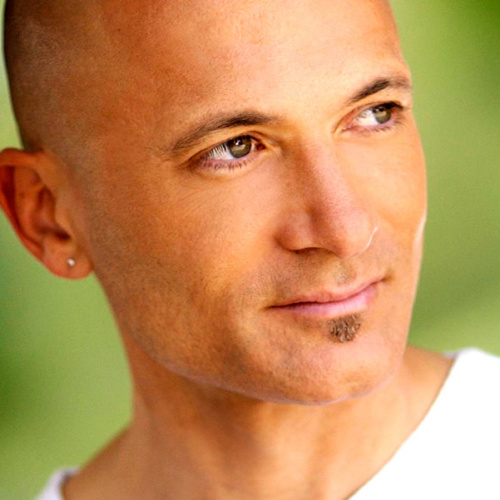Music Career Finder
Survey Start
Music Therapist

How To Become a Music Therapist
- Music Therapists use music to help patients with physical, psychological, and emotional trauma
- Music therapy as a career and the evidence to support its validity is growing
- You must earn a bachelor’s degree in Music Therapy and complete 1,200 hours of fieldwork
- You must pass the board certification exam to practice music therapy
- The average salary for a music therapist is about $81,702 a year
- Career Description
- Salary
- Career Outlook
- Career Path
- Experience & Skills
- Education & Training
- Additional Resources
- Sources
- References
Career Description
Trained music therapists use musical performance, lessons, songwriting, and music listening as part of an integrative course of therapy to improve the client’s social, emotional, physical, and/or cognitive abilities.
They work in a range of settings, from addiction recovery centers to hospices to adult schools to special education programs. They partner with Nurses, Doctors, Counselors, Physical Therapists, Speech Therapists, Voice Therapists, and other professionals to help clients reach their goals.
Who Does a Music Therapist Work With?
Music Therapists work with all sorts of people, including:
- Children
- Elderly Alzheimer’s patients
- Clients with substance abuse problems
- Clients with brain injuries
- Clients physical and developmental disabilities
- Clients with mental health problems
Music Therapist Miya Adout MA, MTA told us music therapy helps “reduce anxiety, improve social and communication skills, increase self-awareness, and improve specific motor skills.”
“Music Therapists work with people as young as babies in the Neonatal Intensive Care Unit, to children with autism spectrum disorder, adults with mental health concerns, and those in end-of-life care,” she explains.
A Day In the Life of a Music Therapist
During a music therapy session, a Music Therapist may play an instrument and sing for the patient or they may turn on a recording of a song and sing along with it.
A therapy session can also involve songwriting and improvisation.
In whatever case, the patient is encouraged to participate by singing or playing an instrument the therapist has provided.
And a therapy session could be one-on-one or in a group therapy context.
When Kalani Das MT-BC (Director of Golden State Music Therapy) works with a patient, he sees it as a collaboration.
“You don’t learn a formula and just do it, you’re creating an answer together,” he told us.
A Quick History of Music Therapy
Music as a source of healing has been used for centuries, but in Western countries, it is a relatively new phenomenon that has grown in use and application since the 1950s.
As an academic discipline, music therapy has become more and more popular, especially in the US, where numerous colleges and universities offer undergraduate and graduate programs that allow the student completing the academic program and internship the opportunity to sit for the board certification exam (MT-BC) as a Music Therapist.
Today, clinical practice in music therapy is recognized as a viable treatment method for a wide range of diseases and disorders.
Salary
According to Rebecca Vaudreuil EdM, MT-BC, a Music Therapist’s salary can range from about $28,000 to about $70,000.
The average salary for a music therapist is about $81,7021 per year.
Music therapy is not a high-paying profession, especially when compared to some other jobs in the medical field.
Where Do Music Therapists Work?
Music Therapists may hold down several jobs at:
- Hospitals
- Rehabilitation centers
- Schools
- Private practice
- Nursing homes
Some music therapists teach part-time or even full-time at a college or university, and then oversee their students’ practicums or work part-time at a healthcare institution.
Whether working as a freelancer or in a salaried position, the experienced board-certified Music Therapist can expect to earn enough money for a middle-class lifestyle.
Hey, what do you think about trying our new Music Career HelperMusic Career Helper really quick? It’s totally free and could help get your career moving fast! Give it a try. It’s totally free and you have nothing to lose.
Career Outlook
While the academic literature in music therapy continues to grow and the number of board-certified Music Therapists is relatively high (10,000), it is not clear what the career outlook for music therapy is.
Vaudreuil said the demand is in fact growing.
“Music Therapists are becoming increasingly recognized for their contributions across medical and healthcare systems…as well as wellness settings,” she said.
One contributing factor to the growth of jobs and salaries may be the aging of the population, as elderly patients tend to have more health challenges that could benefit from music therapy.
Adout said as we see an increase in older adults, we will also see a “need for valuable services that improve their well-being, such as music therapy.”
Another variable in music therapy will be the possibility of insurance reimbursement, particularly for private practitioners, which, at this time, is extremely limited.
As the field continues to grow, it is anticipated that there will be more master’s level programs for advanced clinical practice and possibly more doctoral programs for those aspiring to become music therapy College Professors.
Further, as the World Federation of Music Therapy can attest, music therapy is increasing in more and more countries.
Career Path
Here’s a typical path to becoming a certified music therapist…
Shadow or Intern With a Music Therapist
Before you decide to become a music therapist, you may want to consider shadowing or interning with a board-certified music therapist. This will give you a clear picture of what the career looks like and gives you the chance to ask any questions you may have.
Earn a Music Therapist Degree
You’ll need to earn a Bachelor’s degree (or higher) in Music Therapy. There’s no way to bypass this step.
Become Board Certified
Next, you’ll need to become certified through the Certification Board for Music Therapists (CBMT) to earn the credential MT-BC (Music Therapist – Board Certified), which allows you to start practicing music therapy.
A certified music therapist can then move into supervisory positions or university teaching and research roles.
Therapists who open a private practice can also charge their own rates, therefore making it possible to earn a higher income.
Getting Hired
You can get hired through an internship, by responding to job postings, or by calling care facilities and checking in with Client Services Directors.
In Kalani’s case, he got his first Music Therapy job because someone at an addiction recovery center found his website—so have a good website outlining your credentials, experience, and what makes you special.
Experience & Skills
To become a Music Therapist, you first have to be a proficient musician.
Learn Multiple Instruments
Many Music Therapists are competent on both guitar and piano, and also have some ability with percussion instruments. It’s also important to have some singing abilities and a commanding vocal presence.
Adout says to even get into a Music Therapy program, you need to be able to play an instrument.
Practicing music therapy requires the ability of the Therapist to think quickly and play instruments or sing, while observing and adjusting to accommodate the needs of the patient or group of patients.
Be Good With People
Das says you must understand that people – and people skills – are at the heart of this career.
“Try to research and understand what the career is, and have a passion for serving people,” he said.
Education & Training
Here’s the education and training required to become a music therapist:
Earn a Bachelor’s Degree in Music Therapy
You must attend a university with an accredited music therapy program, which will be a 4-year degree.
Or you can earn a 1- to 2-year graduate degree in music therapy ONLY if you have a strong academic background in music and psychology
Complete 1,200 Hours of Fieldwork
To become certified, you must complete at least 1,200 hours of fieldwork as an intern in a health or education-related setting.
Pass the Board Certification Exam
You must sit for and pass the board certification exam through the Certification Board for Music Therapy and document continuing education credits as required.
Master’s Degree in Music Therapy (optional)
You can also continue on to earn your master’s and doctorate in music therapy, but that is not required before you’re able to start practicing as a music therapist.
Additional Resources
The American Music Therapy Association is the nation’s largest professional association, with over 5,000 Music Therapists in its ranks. The AMTA determines training standards for the industry.
Sources

Kalani Das MT-BC
Kalani Das is a Southern California-based Music Therapist who started his musical career as a performing artist specializing in world music percussion. He was invited to present at a conference for Music Therapists, started teaching them new instrumental skills and shortly afterward was inspired to go back to school for his Music Therapy degree. He specializes in working with clients with addiction, developmental disabilities, traumatic brain injury, and aging-related issues.
As a performer, Kalani Das has toured or recorded with Yanni, Barry Manilow, Kenny Loggins, Chante Moore, and John Mayall. He has written over ten books, including The Way of Music – Creating Sound Connections in Music Therapy, published by Sarsen Publishing (review via Goodreads). He is currently the Director of Programs at Golden State Music Therapy. He has been cited as a resource by Lewy Body Dementia Resource Center and Sound Escape Music Therapy.
Das has been a guest instructor at Chicago’s VanderCook College of Music and taught a masterclass through Imagine. He has performed at Flute Harvest and served as a representative for the Western Region chapter of the American Music Therapy Association.
He has been featured, interviewed, and mentioned by Psychology Today, Sam’s Fans, and the American Speech-Language-Hearing Association.

Miya Adout MA, MTA
Miya Adout founded Miya Music Therapy based on her vision to improve patient quality of life in healthcare settings throughout Ontario. Miya is a graduate of Concordia University where she received a Master of Arts in Creative Arts Therapies after having completed a BA in Cultural Studies. Miya works with individuals of all ages and abilities including with parents and infants, adolescents with autism, and seniors living with dementia.
As the MMT slogan states, Miya believes that music therapy is an integral part of every health and wellness team and she is passionate about sharing this through keynote presentations and workshops. Miya also sits on the board of the Music Therapy Association of Ontario, provides business coaching to healthcare entrepreneurs, and has created Connect 2 Music Therapy, an online global magazine for Music Therapists.
When she’s not providing music therapy or business coaching, Miya enjoys playing with her toddler, spending time in nature, and practicing photography!

Rebecca Vaudreuil EdM, MT-BC
Rebecca Vaudreuil, EdM, MT-BC, MSW Candidate, ’22 is a board-certified Music Therapist who earned a music therapy degree at Berklee College of Music and a master’s in educational neuroscience at Harvard Graduate School of Education. She is currently working on her master’s in social work at Fordham University. She holds additional certifications in the specialty areas of neurologic music therapy, neonatal intensive care music therapy, and music therapy assisted child birthing.
In 2010, she founded a model for music therapy programming that was replicated on multiple military installations in Southern California. Since 2014, Rebecca works for a national initiative that develops music therapy best practices for military populations. She provides clinical and research mentorship, supports increased access to creative arts therapies research across military and veteran healthcare systems, and promotes arts-based partnerships in clinical and community settings across the United States.
Her work has been published in both arts-based and rehabilitation peer-reviewed journals and featured by CNN, ABC’s World News Tonight, PBS as part of the Memorial Day Capital Concerts (2017, 2020), and in a White House Blog. Rebecca is a featured Lecturer at various national and international symposiums, conferences, and universities and works annually with the Jamaica Field Service Project to supervise music therapy in special education Schools of Hope, hospitals, infirmaries, and homeless shelters in rural areas across Jamaica.
References
- 1. "Music Therapist Salaries in United States". Glassdoor.com. published: June 6, 2024. retrieved on: Oct 25, 2024
- 2Careers in Psychology. "Employment Outlook & Career Guidance for Musical Therapists". Careers in Psychology. published: . retrieved on: 21 July 2020
- 3US Bureau of Labor Statistics. "Recreational Therapists". Office of Occupational Statistics and Employment Projections. published: 10 April 2020. retrieved on: 19 June 2020





